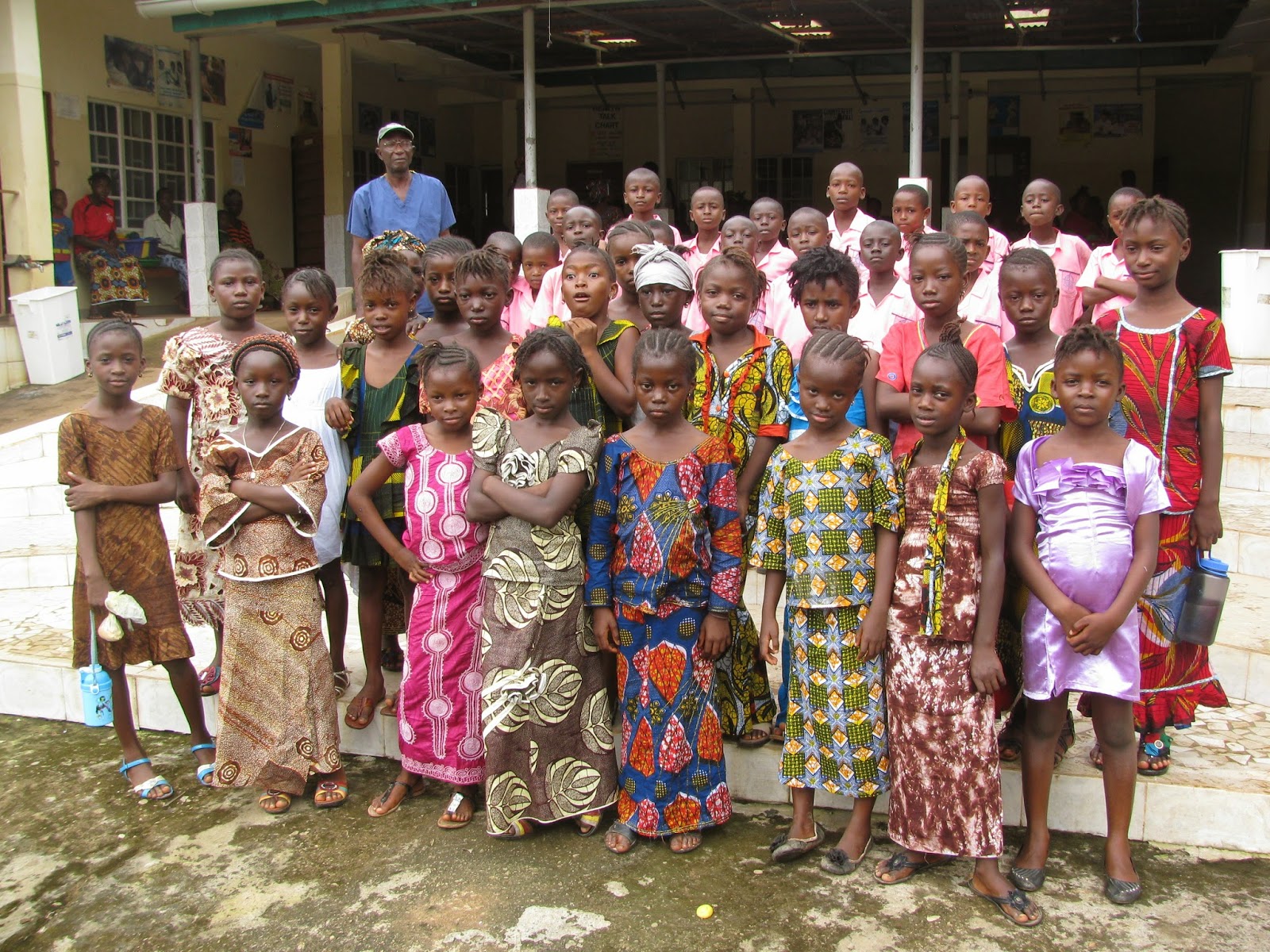The Plight of Dependency
 |
| A rural school in Sierra Leone |
I came across an old document that I received when I first went to Sierra Leone written by the former Director of International Ministries with Resonate Global Mission. He argues the results of unhealthy dependency in ministry harms people's theology. Dependency looks different depending on the context, but when we shift our dependence away from God, we forget that God is our sovereign provider. Dependency often harms relationships with donors. Decisions will be made to please the donors, not based on what the national leaders believe is the best decision for the church/school. Mutual and reciprocal relationships are extremely hard to form when money is on the line. Dependency often damages the dignity of the receiver, creating feelings helplessness and hopelessness. It harms our understanding of being created in the image of God.
Often, dependency on outside resources does damage to the identity and the future capacity of an organization leading towards ministry that may not be contextually appropriate and might not reproduce itself. Dependency can also distort the Gospel message as it can quickly become more about hope in someone else's resources instead of hope in God. Dependency kills creativity and initiative. It does not drive the local community and leaders to think of creative and innovative solutions to their own challenges. This idea that there are few resources in so called "developing" countries is a misconception that we have been taught in the West. We need to learn to recognize the resources that God has provided within each nation and we also need to be careful to not place greater value on Western resources than non-Western resources.
 |
| Creative way to make banana bread |
 |
This very concept of sustainability is what excites me about working with the Association of Christian Schools International (ACSI) in Nigeria. Their model to develop a sustainable organization encourages schools to invest financially in the services that ACSI offers and in turn, ACSI invests in the schools. The organization is able to sustain itself through school membership, annual dues, and charging fees for conferences and professional development. The Nigerian director for ACSI has pulled abundantly from her own resources to help kick-start the organization. There is national initiative, investment, and creativity in ensuring that ACSI continues to move forward and grow. We in North America have the privilege to add value to what God is already doing through ACSI Nigeria. We need to recognize that God is already present and working in Christian education all across Nigeria but he has invited me and you to partner with Him through ACSI.
 |
| A trap for fish built in a river |
The author encourages churches, organizations and even individuals to do an inventory of blessings:
1. Physical blessings
2. economic blessings
3. intellectual blessings
4. spiritual blessings
5. environmental blessings
6. social blessings
When you look at the pictures in this blog, we have been taught to see poverty, to see hopelessness, to see despair. We need to shift away from seeing poverty to seeing ingenuity, creativity, dignity and initiative. We need to recognize how people around the world are using the blessings that God has given them and how we can add value to what is already being done. As you think about your own role in fulfilling God's kingdom here on this earth, maybe it is time to reevaluate the blessings in which God has given you and how are you utilizing them to His glory. God has created us in His image and he has called each of us to use the resources and blessings that He has given us for the work of the Kingdom and for His glory.




Well done, Sarah.
ReplyDeleteHere are 2 more stories of local, Nigerian personnel and ACSI making a difference in a growing number of their nation’s Christian schools. I’m not sure if all my messages are getting through. Do share this with our ACSI colleagues in Lagos as well as in Abuja and other regional offices.
A) In central Nigeria, 7 educators of 4 different ACSI schools in Jos completed their 2-year program in Educational Care (EC) in-service workshops a year ago. During those 3 years, “leaven of the kingdom of God” started working good changes in their 4 schools. That’s about to multiply again. Those 7 are diligently preparing to, THEMSELVES, lead EC’s first module “Biblical Worldview” for 30-40 others from their own schools and from several schools new to ACSI. They gained wonderful leadership experience by volunteering to assist me in EC start-ups with 2 other school groups. Please pray for their readiness for their 5-day event in early April.
B) Mrs. Mary Ann is another local believer who’s sharing generously from her skills and holy commitment. She is NOT an educator. She’s a joyful wife and mother who grew her fine cooking and accounting skills into a profitable, small-scale baking/catering business. Her very sanitary kitchen and hand-made ovens were built of galvanized sheet metal and salvaged materials. EC workshops entail (3-5) rigorous 8-hour days per module. Mrs. Mary Ann’s punctual tea-snacks and tasty lunches maintain good energy and spirit –on time. Though catering comprises about 60% of registration fees, her thriftiness and the simplicity of EC materials are keeping excellent training affordable for local schools at an equivalent of US$3.50 per workshop day.
These are just a few of the Nigerian believers working with ACSI to grow Christian schools that bring light and salt to bear on their own nation’s vast educational needs. These and others are praying with me for you, Sarah.
Your teamwork with ACSI in Lagos will bless many. May the growth of your support team be blessed so that you will be released to join us soon –very soon. -Mw